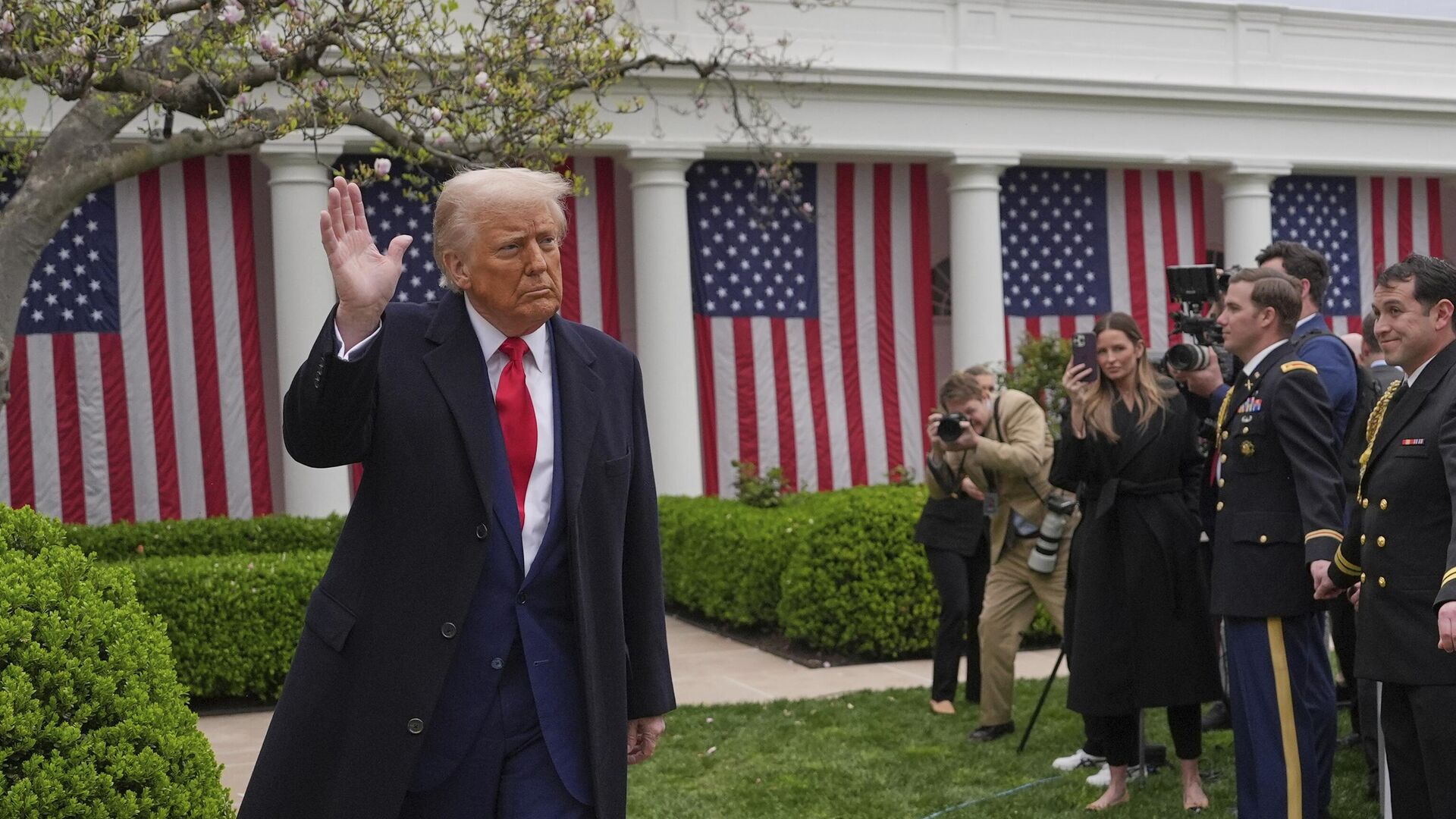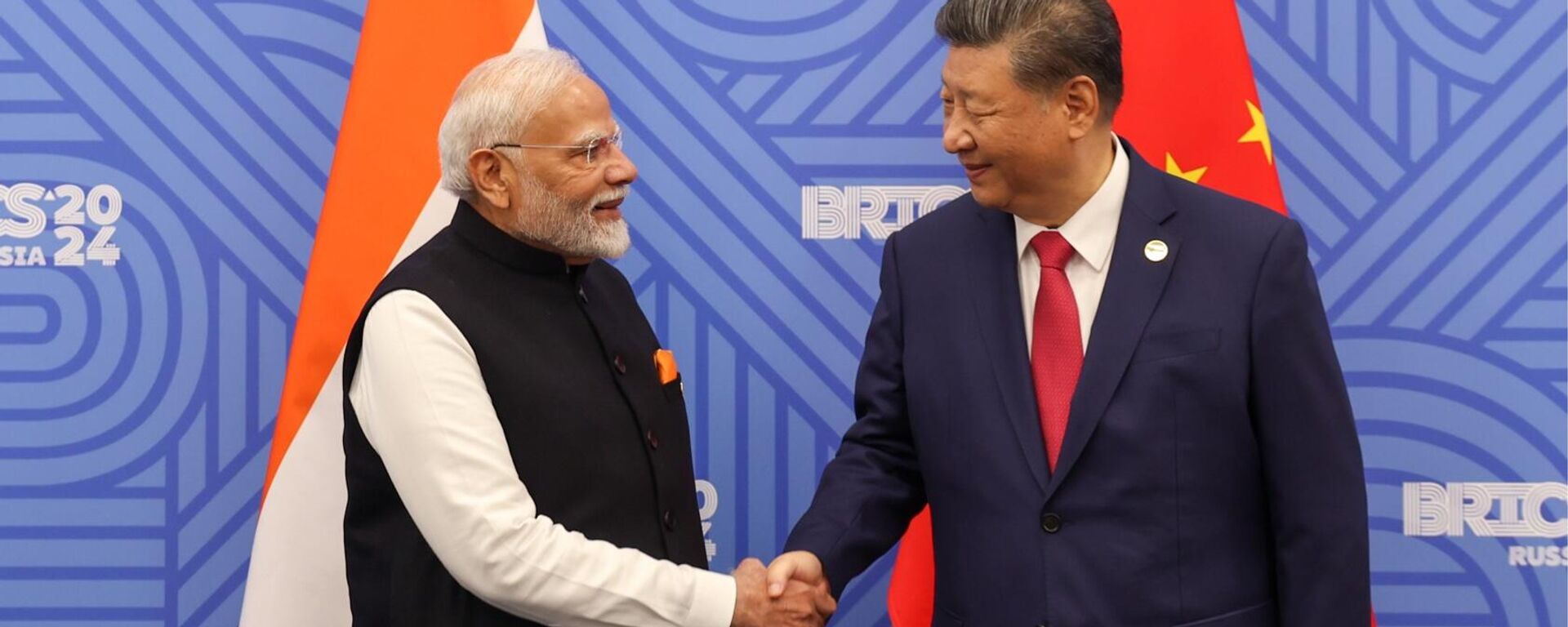https://sputniknews.in/20250411/trumps-tariff-war-puts-indian-retail-investors-at-risk-industry-sources-8970966.html
Trump’s Tariff War Puts Indian Retail Investors At Risk: Industry Sources
Trump’s Tariff War Puts Indian Retail Investors At Risk: Industry Sources
Sputnik India
Industry sources told Sputnik India that the volatility induced in Indian and global capital markets by US President Donald Trump’s tariff action has adversely impacted the confidence of retail investors.
2025-04-11T19:21+0530
2025-04-11T19:21+0530
2025-04-11T19:21+0530
business & economy
donald trump
india
us
china
reserve bank of india (rbi)
tata
inflation
trade
trade corridor
https://cdn1.img.sputniknews.in/img/07e9/04/0b/8972221_0:0:3072:1728_1920x0_80_0_0_f64d257ab95a17858ccd3dbfd7afdad0.jpg
US President Donald Trump’s flip-flop on tariffs over the last week has emerged as a major cause of worry for Indian retail investors, challenging their resilience, industry sources said.“These big corporates are very robust and not short of capital. They have the capacity to withstand stock market volatility for around 1-1.5 years. This is how long we believe it will take for the capital markets to stabilise,’ industry sources stated.Around $162 billion (14 lakh crore INR) were wiped off from Indian markets on Monday amid fears of a full-blown trade war after Trump’s ‘Liberation Day’ tariffs invoked retaliatory tariffs from China, the world’s second-biggest economy. A day after Trump announced a 90-day pause in tariffs on nearly 70 countries but China, for which the import levy stands at 145% at present, both the Bombay Stock Exchange (BSE-30) and Nifty-50 indices marginally rose.The spillover of fears of a US-China trade war have been felt across all the major markets, including Hong Kong’s Hang Seng and Japan’s Nikkei. Meanwhile, Reuters reported that the Wall Street witnessed its worst week since March 2020 amid fears of a trade war in the wake of China’s retaliatory tariffs. All three major indices, S&P 500, Dow Jones and Nasdaq, went into a downward spiral last week.But for Indian investors, fears of a global trade war could reverse the gains of the last five years, which have witnessed ever more middle-class and individual investors pouring their savings into the capital markets.According to the Economic Survey 2024-25 released on 31 January, any correction in the US stock market will have implications for the Indian market.The pre-budget document around retail participation in NSE stood at an all-time high of over 100 million in August 2024. Individual client codes have risen to nearly 210 million, as of December 2024.What's more, the Survey revealed that individual investors collectively put in a record of $46.4 billion (4.4 lakh crore INR) in the NSE’s cash market segment between 2020-24. The government document stated that along with growing investments in mutual funds, individual investors more than made up for volatile FPI outflows in the last five years."At some point, the oil marketing companies (OMCs) will have to pass on the reduced costs of crude, which are trading at less than $60 per barrel for the first time since 2021, to consumers. “Stock market volatility, petrol prices and inflation all add up in a way. These factors could have political ramifications,” industry sources said.According to Economic Survey 2023-24, India's stock market to GDP ratio increased from 77% in 2019 to 124% in 2023-24.On Thursday, reacting to the bloodbath in US markets, Trump acknowledged that there would be “always be transition problems."
https://sputniknews.in/20250410/trumps-tariffs-what-to-expect-from-chinas-olive-branch-to-india-8964466.html
india
us
china
japan
Sputnik India
feedback.hindi@sputniknews.com
+74956456601
MIA „Rossiya Segodnya“
2025
Dhairya Maheshwari
https://cdn1.img.sputniknews.in/img/07e6/0c/13/138962_0:0:641:640_100x100_80_0_0_2cb44360dbcdf6d84bf4b299cd045917.jpg
Dhairya Maheshwari
https://cdn1.img.sputniknews.in/img/07e6/0c/13/138962_0:0:641:640_100x100_80_0_0_2cb44360dbcdf6d84bf4b299cd045917.jpg
News
en_IN
Sputnik India
feedback.hindi@sputniknews.com
+74956456601
MIA „Rossiya Segodnya“
Sputnik India
feedback.hindi@sputniknews.com
+74956456601
MIA „Rossiya Segodnya“
Dhairya Maheshwari
https://cdn1.img.sputniknews.in/img/07e6/0c/13/138962_0:0:641:640_100x100_80_0_0_2cb44360dbcdf6d84bf4b299cd045917.jpg
stock market india, stock market crash, stock market news, trump news, trump tariffs, trump tariff news, modi trump news, modi news, us china trade, us china trade war, us china trade deficit, us china trade, india us trade
stock market india, stock market crash, stock market news, trump news, trump tariffs, trump tariff news, modi trump news, modi news, us china trade, us china trade war, us china trade deficit, us china trade, india us trade
Trump’s Tariff War Puts Indian Retail Investors At Risk: Industry Sources
Industry sources told Sputnik India that the volatility induced in Indian and global capital markets by US President Donald Trump’s tariff action has adversely impacted the confidence of retail investors, whose participation in markets is at an all-time high.
US President Donald Trump’s flip-flop on tariffs over the last week has emerged as a major cause of worry for Indian retail investors, challenging their resilience, industry sources said.
“The resilience of India’s middle-class investors can’t be challenged over and over again. They are bearing the pinch of the stock market volatility. Unlike stocks of listed companies like Adanis, Ambanis, Mahindra and Tatas, the appetite of individual investors to withstand stock market volatility is much lesser,” these sources said.
“These big corporates are very robust and not short of capital. They have the capacity to withstand stock market volatility for around 1-1.5 years. This is how long we believe it will take for the capital markets to stabilise,’ industry sources stated.
Further, these sources informed that corporates such as Adani have also engaged global credit agencies to boost confidence amid fears of a trade war, recession and inflation.
Around $162 billion (14 lakh crore INR) were wiped off from Indian markets on Monday amid fears of a full-blown trade war after Trump’s ‘Liberation Day’ tariffs invoked retaliatory tariffs from China, the world’s second-biggest economy. A day after Trump announced a 90-day pause in tariffs on nearly 70 countries but China, for which the import levy stands at 145% at present, both the Bombay Stock Exchange (BSE-30) and Nifty-50 indices marginally rose.
The spillover of fears of a US-China trade war have been felt across all the major markets, including Hong Kong’s Hang Seng and Japan’s Nikkei. Meanwhile, Reuters reported that the Wall Street witnessed its worst week since March 2020 amid fears of a trade war in the wake of China’s retaliatory tariffs. All three major indices, S&P 500, Dow Jones and Nasdaq, went into a downward spiral last week.
But for Indian investors, fears of a global trade war could reverse the gains of the last five years, which have witnessed ever more middle-class and individual investors pouring their savings into the capital markets.
According to the Economic Survey 2024-25 released on 31 January, any correction in the US stock market will have implications for the Indian market.
The pre-budget document around retail participation in NSE stood at an all-time high of over 100 million in August 2024. Individual client codes have risen to nearly 210 million, as of December 2024.
What's more, the Survey revealed that individual investors collectively put in a record of $46.4 billion (4.4 lakh crore INR) in the NSE’s cash market segment between 2020-24. The government document stated that along with growing investments in mutual funds, individual investors more than made up for volatile FPI outflows in the last five years.
An important parameter, industry sources point out, is to ensure that inflation levels remain under check. This week, the Reserve Bank of India’s (RBI) Monetary Policy Committee (MPC) revised downwards India’s consumer inflation forecast from 4.2% to 4% for the current fiscal 2025-26.
"At some point, the oil marketing companies (OMCs) will have to pass on the reduced costs of
crude, which are trading at less than $60 per barrel for the first time since 2021, to consumers. “Stock market volatility, petrol prices and inflation all add up in a way. These factors could have political ramifications,” industry sources said.
The only silver lining, the sources said, was that the “stock market bubble” in place since 2019-2020 would bust, like it’s happening in all major economies, including the US. “One could expect the Nifty Sensex to stabilise at around 17,000 from the current 22,000 level. Once this stabilises, it would only go up from there. So, many retail investors would also be advised to stay invested till that happens,” industry sources stated.
According to Economic Survey 2023-24, India's
stock market to GDP ratio increased from 77% in 2019 to 124% in 2023-24.
“There is a perception in the Indian business community that things will settle down eventually. Being a shrewd politician and a businessman, Trump wouldn’t like the mess to continue for the full four years of his presidency,” Indian industry sources reckoned.
On Thursday, reacting to the bloodbath in US markets, Trump acknowledged that there would be “always be transition problems."



